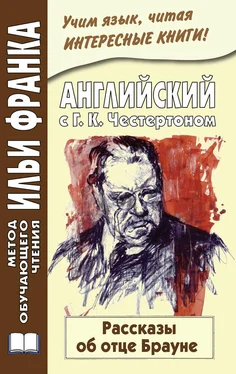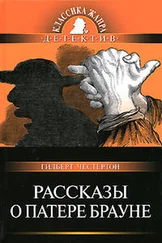
 The British forces as a whole were greatly superior in numbers; but this particular regiment was just far enough from its base to make Olivier consider the project of crossing the river to cut it off. By sunset, however, he had decided to retain his own position, which was a specially strong one. At daybreak next morning he was thunderstruck to see that this stray handful of English, entirely unsupported from their rear, had flung themselves across the river, half by a bridge to the right, and the other half by a ford higher up, and were massed upon the marshy bank below him.
The British forces as a whole were greatly superior in numbers; but this particular regiment was just far enough from its base to make Olivier consider the project of crossing the river to cut it off. By sunset, however, he had decided to retain his own position, which was a specially strong one. At daybreak next morning he was thunderstruck to see that this stray handful of English, entirely unsupported from their rear, had flung themselves across the river, half by a bridge to the right, and the other half by a ford higher up, and were massed upon the marshy bank below him.
“That they should attempt an attack with such numbers against such a position was incredible enough(то, что они /англичане/ с такими силами решились предпринять атаку /против такого расположения противника/, было само по себе достаточно невероятным) ; but Olivier noticed something yet more extraordinary(но Оливье увидел нечто еще более необычное; to notice – замечать, обращать внимание ) . For instead of attempting to seize more solid ground, this mad regiment, having put the river in its rear by one wild charge, did nothing more(вместо того, чтобы попытаться выбраться на более твердую почву, этот сумасшедший полк, сумевший при безумной атаке оставить реку позади, больше не предпринял ничего; to seize – хватать; завладевать, захватывать; wild – дикий; необдуманный; безумный; charge – нагрузка; заряд; расходы; атака; штурм ) , but stuck there in the mire like flies in treacle(завязнув в болоте, как мухи в патоке; to stick – застрять; mire – трясина, болото; топь; fly – муха; treacle – патока ) . Needless to say, the Brazilians blew great gaps in them with artillery(не стоит и говорить, что бразильцы пробили своей артиллерией большие бреши в их рядах; to blow; gap – пролом, брешь ) , which they could only return with spirited but lessening rifle fire(англичане могли противопоставить: «они могли только вернуть» лишь оживленный, но слабеющий ружейный огонь) . Yet they never broke(и все-таки они не дрогнули; to break – ломать/ся/ ) ; and Olivier’s curt account ends with a strong tribute of admiration for the mystic valour of these imbeciles(и лаконичный рапорт Оливье заканчивается горячим восхищением загадочным бесстрашием этих глупцов; to admire – восхищаться; tribute – дань, должное; imbecile – глупец; идиот ).

 “That they should attempt an attack with such numbers against such a position was incredible enough; but Olivier noticed something yet more extraordinary. For instead of attempting to seize more solid ground, this mad regiment, having put the river in its rear by one wild charge, did nothing more, but stuck there in the mire like flies in treacle. Needless to say, the Brazilians blew great gaps in them with artillery, which they could only return with spirited but lessening rifle fire. Yet they never broke; and Olivier’s curt account ends with a strong tribute of admiration for the mystic valour of these imbeciles.
“That they should attempt an attack with such numbers against such a position was incredible enough; but Olivier noticed something yet more extraordinary. For instead of attempting to seize more solid ground, this mad regiment, having put the river in its rear by one wild charge, did nothing more, but stuck there in the mire like flies in treacle. Needless to say, the Brazilians blew great gaps in them with artillery, which they could only return with spirited but lessening rifle fire. Yet they never broke; and Olivier’s curt account ends with a strong tribute of admiration for the mystic valour of these imbeciles.
‘Our line then advanced finally(затем в конце концов наша пехота выдвинулась вперед; line – линия; черта; очередь; оборонительный рубеж; пехотные части /в британской армии/ ) ,’ writes Olivier(пишет Оливье) , ‘and drove them into the river(и загнала их в реку; to drive ) ; we captured General St. Clare himself and several other officers(мы взяли в плен самого генерала Сент-Клэра и нескольких других офицеров; to capture – захватывать, брать силой; брать в плен ) . The colonel and the major had both fallen in the battle(полковник и майор – оба пали в этом бою) . I cannot resist saying that few finer sights can have been seen in history than the last stand of this extraordinary regiment(не могу удержаться, чтобы не отметить, что история видела не много таких прекрасных зрелищ, как последний бой этого замечательного полка) ; wounded officers picking up the rifles of dead soldiers, and the general himself facing us on horseback bareheaded and with a broken sword(раненые офицеры подбирали ружья убитых солдат, сам генерал отважно сражался на коне, с непокрытой головой, шпага его была сломана; to wound – ранить; to pick up – поднимать, подбирать; to face – сталкиваться /с неприятностями/; смело смотреть в лицо /опасности/ ) .’ On what happened to the general afterwards Olivier is as silent as Captain Keith(о том, что случилось с генералом позднее, Оливье умалчивает, как и капитан Кит) .”
“Well,” grunted Flambeau(проворчал Фламбо) , “get on to the next bit of evidence(переходите к следующему свидетельству) .”

 ‘Our line then advanced finally,’ writes Olivier, ‘and drove them into the river; we captured General St. Clare himself and several other officers. The colonel and the major had both fallen in the battle. I cannot resist saying that few finer sights can have been seen in history than the last stand of this extraordinary regiment; wounded officers picking up the rifles of dead soldiers, and the general himself facing us on horseback bareheaded and with a broken sword.’ On what happened to the general afterwards Olivier is as silent as Captain Keith.”
‘Our line then advanced finally,’ writes Olivier, ‘and drove them into the river; we captured General St. Clare himself and several other officers. The colonel and the major had both fallen in the battle. I cannot resist saying that few finer sights can have been seen in history than the last stand of this extraordinary regiment; wounded officers picking up the rifles of dead soldiers, and the general himself facing us on horseback bareheaded and with a broken sword.’ On what happened to the general afterwards Olivier is as silent as Captain Keith.”
“Well,” grunted Flambeau, “get on to the next bit of evidence.”
“The next evidence(/что касается/ следующего свидетельства) ,” said Father Brown, “took some time to find, but it will not take long to tell(/мне/ пришлось потратить время, чтобы найти его, но не потребуется много времени, чтобы о нем рассказать) . I found at last in an almshouse down in the Lincolnshire Fens an old soldier(в одном из приютов Линкольншира Фенс мне наконец-то удалось найти старого солдата) who not only was wounded at the Black River, but had actually knelt beside the colonel of the regiment when he died(который не только был ранен у Черной реки, но и стоял на коленях перед умирающим полковником этого полка; to kneel – преклонять колени, стоять на коленях ) . This latter was a certain Colonel Clancy, a big bull of an Irishman(этим последним был некий полковник Кланси, здоровенный, как бык, ирландец; latter – последний /из двух названных/ ) ; and it would seem that he died almost as much of rage as of bullets(и представляется, что он умер не столько от ран, сколько от ярости: «умер в такой же степени от ярости, как и от пуль») . He, at any rate, was not responsible for that ridiculous raid(он, во всяком случае, не несет ответственности за ту позорную операцию; ridiculous – нелепый, смехотворный; позорный ) ; it must have been imposed on him by the general(по всей вероятности, она была навязана ему генералом) . His last edifying words, according to my informant, were these(его последние предсмертные слова: «нравоучительные слова», как передал мне этот солдат: «согласно моему информанту», были следующими) : ‘And there goes the damned old donkey with the end of his sword knocked off(вон едет проклятый старый осел со шпагой с отломанным концом) . I wish it was his head(жаль, что он не сломал свою голову) .’ You will remark that everyone seems to have noticed this detail about the broken sword blade(обратите внимание, все замечают эту деталь о сломанном клинке шпаги) , though most people regard it somewhat more reverently than did the late Colonel Clancy(хотя большинство людей относятся к ней более почтительно, чем покойный полковник Кланси; to regard – расценивать, рассматривать; считать; относиться; reverent – почтительный, уважительный; благоговейный ) . And now for the third fragment(а теперь третья часть) .”
Читать дальше
Конец ознакомительного отрывка
Купить книгу


 The British forces as a whole were greatly superior in numbers; but this particular regiment was just far enough from its base to make Olivier consider the project of crossing the river to cut it off. By sunset, however, he had decided to retain his own position, which was a specially strong one. At daybreak next morning he was thunderstruck to see that this stray handful of English, entirely unsupported from their rear, had flung themselves across the river, half by a bridge to the right, and the other half by a ford higher up, and were massed upon the marshy bank below him.
The British forces as a whole were greatly superior in numbers; but this particular regiment was just far enough from its base to make Olivier consider the project of crossing the river to cut it off. By sunset, however, he had decided to retain his own position, which was a specially strong one. At daybreak next morning he was thunderstruck to see that this stray handful of English, entirely unsupported from their rear, had flung themselves across the river, half by a bridge to the right, and the other half by a ford higher up, and were massed upon the marshy bank below him.





